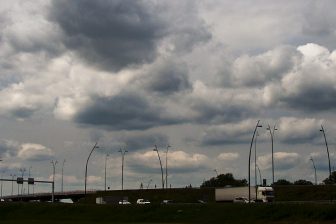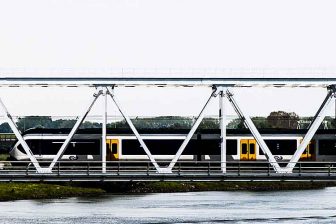EU transport policy conflicts sustainable development
Brussels, Belgium – The EU is about to embark on an unsustainable new transport policy which has little or no economic justification and undermines several other key European policies according to The Green 10 group of environmental NGOs in a letter sent today to Commission President José Manuel Barroso.
THE FULL LETTER
Dear President Barroso,
We are concerned about the direction the Commission is apparently taking in its
midterm review of the 2001 Common Transport Policy white paper.
Our concerns stem from a draft internal Commission paper dated 23 March
2006 that we have seen; and from comments made publicly in recent months
and weeks by the Commissioner for Transport and other Commission officials.
Contradiction with agreed EU policy
Firstly, we are deeply concerned by the uncoordinated, standalone character of
the draft document.
The basic premise of the new policy direction appears to be that mobility should
be encouraged in order to create the conditions for growth and jobs. However,
such a premise is in direct conflict with several overarching and related policy
areas, such as the Sustainable Development Strategy, and EU policy in the
fields of energy, climate change, public health, the use and management of
natural resources (particularly in the case of extractive industries) and
protection of biodiversity. These policy areas are at risk of being severely
undermined if transport policy does not take their goals into account.
Moreover, this change of direction is in conflict with the objectives of the original
2001 White Paper which itself took into account the 2001 Gothenburg European
Council conclusions that stated, “Action is needed to bring about a significant
decoupling of transport growth and GDP growth, in particular by a shift from
road to rail, water and public passenger transport”.
Justification for this change of policy is completely lacking.
Conflict with Lisbon Strategy
Secondly, we strongly disagree with the assumption that encouraging increased
transport is in line with the Lisbon Strategy for growth and jobs.
There is a consensus in the scientific community that transport growth is not
linked to increased employment – the European Conference of Ministers of
Transport recognised this five years ago.
Recent experience from Germany, Sweden and the UK shows that smart
transport pricing schemes reduce travel times, congestion, healthcare costs,
energy use and pollution, and have a neutral or positive impact on growth and
jobs. The central challenge for the future is how transport and its impacts can
be properly managed, not how it should be encouraged.
Unjustifiable subsidies
Thirdly, we are concerned that the Commission intends to recommend the use
of cohesion and structural funds to prioritise road infrastructure in particular.
This has been justified on the basis that it would best serve economic
development and cohesion objectives.
In our view this strategy is flawed. Sustainable economic development and
cohesion in the new Member States will not be helped by European support for
selected large infrastructure projects that often harm the environment and
represent poor value for public money. There is a desperate need instead for a
strategy that helps States to maintain, renew and upgrade their existing infrastructure. Extensive rail
networks in many of the new Member States are a strategic asset that are at risk from being lost due
to insufficient funding.
The best way to prepare for the challenges of our future mobility is to make Europe less transportdependent
and to ensure that mobility is environmentally, socially and economically sustainable.
Implementing the ‘polluter pays’ principle as enshrined in the Treaty and re-focusing EU investment in
transport are two important ways of achieving these objectives.
In short, we are concerned that the Commission is about to embark on an unsustainable new
transport policy which has little or no economic justification and undermines several other key
European policies.
We would like your assurance that these concerns will be addressed in the coming weeks before the
final review is published. Furthermore, we would welcome the opportunity to address these concerns
with you in person.
Yours sincerely,
Jos Dings
Director
European Federation for Transport and Environment (T&E)
rue de Pépinière 1, 1000 Brussels
Magda Stoczkiewicz
Policy Coordinator
CEE Bankwatch Network
rue Blanche 15, 1050 Brussels
Also on behalf of:
Christian Baumgartner, Secretary General, International Friends of Nature
Matthias Duwe, Director, Climate Action Network Europe
Fouad Hamdan, Director, Friends of the Earth Europe
John Hontelez, Secretary General, European Environmental Bureau
Genon Jensen, Director, European Public Health Alliance – Environment Network
Tony Long, Director, WWF European Policy Office
Clairie Papazoglou, Head of EU Policy, BirdLife International
Jorgo Riss, Director, Greenpeace European Unit
cc.
Jacques Barrot, Stavros Dimas
U las zojuist één van de gratis premium artikelen
Onbeperkt lezen? Profiteer nu van de introductieaanbieding voor € 10,- per maand.
Bent u al abonnee?



